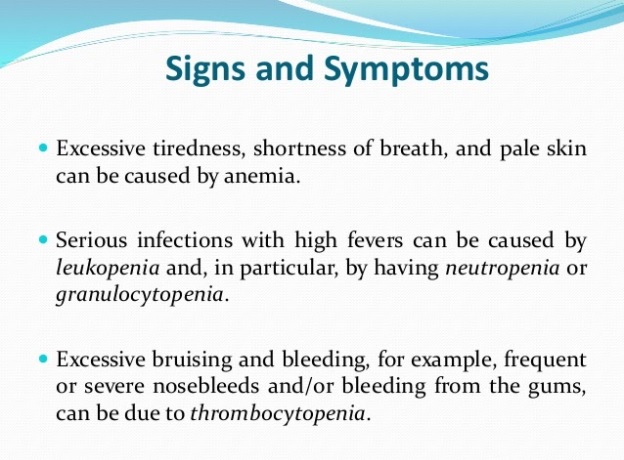Myelodysplastic Syndrome (MDS)
- Myelodysplastic syndromes (MDS) are conditions considered a type of cancer that can occur when the blood-forming cells in the bone marrow do not develop into mature blood cells and stay in an immature state.
- It is most commonly diagnosed in people in their 70s.
What are the Symptoms of Myelodysplastic Syndrome?
Myelodysplastic syndrome (MDS) often does not have symptoms in the early stages. If there are signs, they may be subtle or like those for other medical problems. When myelodysplastic syndrome does have symptoms, they may include:
-
Low blood cell counts resulting in anemia, leukopenia, or thrombocytopenia
-
Unexplained Weight loss
-
Fever
-
Loss of appetite
Contact our office today if you believe you may be at risk and/or are experiencing some of the symptoms listed above. Our team of doctors will determine the course of treatment that is best suited for you.






What are the Risk Factors and Causes for Myelodysplastic Syndrome (MDS)?
-
Most cases of Myelodysplastic Syndrome are linked to known risk factors which include:
-
Age: MDS is uncommon in people under 50, and most cases are found in people in their 70s or 80s.
-
Cancer Treatment: Patients who have been treated with certain chemotherapy medications for cancer are more likely to develop MDS later on.
-
Genetic Syndromes: Patients with inherited gene mutations are more likely to develop MDS
-
Smoking: Smoking Increases the risk of MDS
-
Radiation exposure
-
Workplace exposure
Q & A
A: Yes, because your body has less white blood cells to fight off infections, you are more vulnerable to infections if you have leukopenia.
A: Bone marrow is the soft, spongy tissue inside some of your bones and contains stem cells that develop into your bodies red blood cells, white blood cells, and platelets. If the bone marrow is affected by a condition, it can cause less or excessive blood cells to be produced.
A: The spleen is an organ behind your stomach and part of the lymphatic system which helps fight infection. The spleen acts as a blood filter for old or damaged red blood cells, as well as detecting any virus or bacteria in the blood.
How is Leukopenia treated?
Treatment for Leukopenia is directed at alleviating symptoms and targeting the infection and treating them at the earliest. Treatment for leukopenia is usually palliative.
If cancer is the cause of the Leukopenia then chemotherapy may be done to treat the cancer that is causing it.
Vitamins and Steroids may be given to patients to try to increase the white blood cell count, because they stimulate the bone marrow to produce more white blood cells and treat Leukopenia.
May involve the pausing of the medications and treatments that are causing leukopenia.
Contact our office today if you believe you may be at risk and/or are experiencing some of the symptoms listed above. Our team of doctors will determine the course of treatment that is best suited for you.


